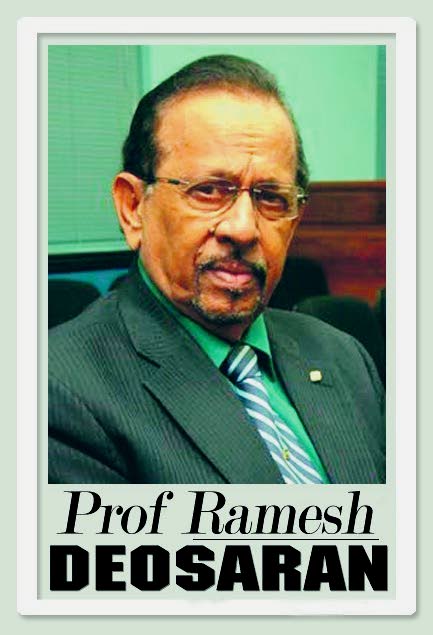Democracy’s bitter pill

Bitter. This is described as showing mental pain or resentment; painful or difficult to accept.” Indeed it was politically painful for the Government to accept defeat over the infamous Clause 7 of its miscellaneous package of legislation. Politically, it was a bitter pill. But for the country it shows that democracy is still alive, thankfully so to the free press and civil society conscience. It has been said that sometimes a people must protect itself against the government, any government.
Now there were at least ten issues.
(1) This Clause 7 was an amendment to the Freedom of Information Act (FOIA) which was curiously stuffed into a Miscellaneous Provision Bill containing other disparate proposals described by Martin Daly SC and Reginald Dumas as unnecessarily complicated and disorderly. For example, having “freedom of information” connected to “pensions or tax amnesty” does not make for a proper policy debate on either proposal.
(2) Clause 7 seemed to be in the public interest, that is, it allowed a second chance for the information request whenever the government agency denies it. (Never mind “lawyers milking the treasury”) This initial proposal gave the Attorney General 90 days to reconsider the rejection.
(3) But this carrot carried a big stick. The AG’s 90 days is a new addition. Moreso, the existing 30 days period was extended to 90 days too, making the request period a total of 180 days! And civil society noisily and righteously rebelled. “Govt’s grab for power” one editorial thundered.
(4) The media-driven debate was enlivened when the UNC originator of the FOIA, Ramesh Lawrence Maharaj, with earned entitlement, publicly entered, severely chastising the Government for dictatorship leanings.
(5) The Government could have handled this legislative episode better. Given the ground-level hostile environment and with elections hanging the air, government should have early invited representatives from the 47 civil groups, the Media Association particularly, to a consultation, then move into the senate rather than remaining exposed to charges of dictatorship.
(6) This soothing consultation would have helped provide the Government with a more justifiable, less partisan, exit. But PM Dr Rowley digged in his heels, apparently prepared to take the political risk. But as things heated up, he made a dramatic move in the Lower House, publicly “instructing” the AG to leave the initial 30 days for government agencies as is but the AG period should remain. Not enough, quickly replied the media, civil society and the Opposition with threats to take the matter to court.
(7) The Government eventually surrendered in the senate tactfully relying on the softening views of two independent senators. Seemingly moved into reason, this is how Finance Minster Colm Imbert surrendered: “I have listened very carefully to what senators opposite had to say, and Senator Chote in particular. She raised the point of (AG) conflict of interest.”
(8) And so, Clause 7 was withdrawn without a bruised Government paying tribute to the protests of civil society or the Opposition.
(9) In a “all’s well that ends well,” postscript, Dr Sheila Rampersad’s Media Association noted: “This is a victory for civil society that responded swiftly and comprehensively to the government’s proposed amendment.”
(10) Why this public uproar? In a system of representative government, information on government tax-paying decisions and policies is vital for a democracy at work. It is already difficult to get ministers and public agencies to respond positively to citizens’ requests and complaints, often making activists like Devant Maharaj and Kirk Waithe civic heroes. Any government that attempts to suppress or bypass the supply of public-interest information is asking for big trouble especially in a society with a free and robust media.
This government vs the people episode reminds me of the 1970 Public Order Bill pushed by the former AG, late Karl Hudson-Phillips, QC. It was the media, trade unions and business community that collectively and successfully pressured the government to withdraw it. With the imperious PM Dr Williams and a law and order AG, it was a very bitter pill. This FOIA and the parliamentary Joint Select Committee system with a watchdog media are three pillars that should help enrich our democracy.
The role of each must be improved rather than being diminished, worse yet for short-term political expediency that poisons and stifles democracy.


Comments
"Democracy’s bitter pill"